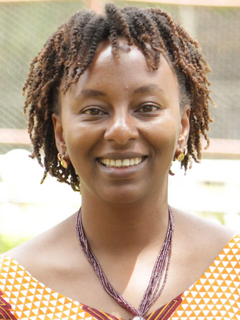2nd AfCPA Keynote Speakers
Agricultural Engineer, Ph.D. in Agricultural Engineering at the University of Nebraska. He is a Professor at the University of São Paulo (USP), in the Department of Biosystems Engineering, Luiz de Queiroz College of Agriculture (ESALQ), in Piracicaba, São Paulo, since 1989, where he coordinates the Precision Agriculture Laboratory. He works at the interface between the area of Agricultural Machinery and Precision Agriculture, especially with crop and soil sensors, spatial variability, yield mapping and site-specific application of inputs. He coordinated the Brazilian Congress of Precision Agriculture from its creation in 2004 until 2018; chaired the Brazilian Commission for Precision Agriculture - CBAP, of the Ministry of Agriculture, Livestock and Supply from its creation in 2012 to 2016 and was president of the Brazilian Association of Precision Agriculture - AsBraAP, from its foundation until 2020.
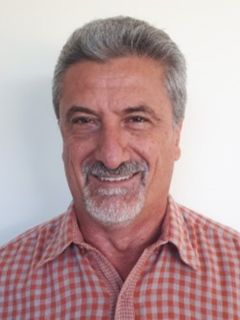
Soils with limited natural fertility and high dependence on imported fertilizers, in addition to intense natural spatial variability, are factors that made Precision Agriculture (PA) develop in Brazil. More than 20 years of academic and business experience have been accumulated, with intense consulting services with business models adapted to local conditions, involving small, medium and large rural properties. Innovations and challenges are still needed in the field of soil fertility management, as well as advances in the adoption of phytosanitary control practices for crops using PA techniques. In the segment of technologies associated with machines, the local market remains aligned with global innovations. It is hoped to offer an approach to this evolution.
Ruth is the soil scientist for The Nature Conservancy’s (TNC) Africa Region. She leads the region’s work on agriculture-soil-climate interactions, regenerative and climate-smart agriculture working with smallholder farmers and other stakeholders. Ruth’s work is geared towards enhancing farmers’ productivity and profitability and mitigating climate change.
Ruth has worked with hundreds of farmers to improve their farms’ soil heath in the upper Tana region in central Kenya and the IHEMI cluster of the Iringa and Njombe regions of Southern Tanzania. She recently contributed in co-designing the central Highlands Ecoregion Foodscape (CHEF) which is centered around food production, protecting water, wildlife, and people. Ruth represents the Africa region in the TNC’s global Science Cabinet, the apex body that sets and guides the organizations’ research priorities.
Her training is in the management of agroecosystem and environment and has a Master of Soil Science from the University of Nairobi. She has published articles in scientific journals on integrated soil fertility management and soil carbon stocks.
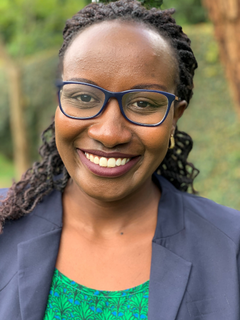
The relationships among soil health and adoption of regenerative practices, crop productivity, human nutrition and farm profitability are intricate and poorly understood, particularly in the Central Highlands of Kenya. There is a need for a deeper understanding of how soil health is affected by the profitability of preferred value chains among smallholders in this ecoregion. The Central Highlands Ecoregion Foodscape, or the CHEF, which is within the Upper Tana River Basin is centered around food production, ultimately this work is about protecting water, wildlife and people. Through TNC’s work in the CHEF We are leveraging existing partnerships to influence value chains that provide incentives to farmers who implement water-efficient practices; this improves farmer production while protecting the water, and in turn the surrounding ecosystems that depend on this water.
John is a Professor in the Food, Agriculture and Biological Engineering Department at The Ohio State University (OSU). His research and Extension focuses on digital agriculture, machinery automation, and use the of spatial data to improve crop production and the farm business. He works with precision ag services providers across North America on technology options and services to support farmers while speaking internationally about the evolution of digital agriculture. He helps lead the Digital Program at Ohio State and is serving as President of the International Society of Precision Agriculture.
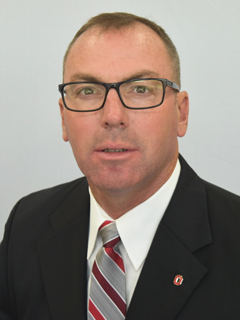
This presentation will provide an overview of ISPA and the value it provides its membership plus where it is heading to be the global leader in scientific research and education on precision agriculture.
Dr. Fulton will present about current educational degree programs and courses being taught in North America on precision and digital agriculture. He will also note feedback from industry on precision agriculture educational needs and where universities are heading with their PA programs.
Dr Francelino Rodrigues has been working in precision agriculture and remote sensing since 2004, including in his MSc, Ph.D. and Postdoctoral studies. During his time, he has got precision agriculture and remote sensing experience in contrasting cropping systems (coffee, sugarcane, cereals) in a variety of countries (Brazil, Australia and Mexico) and at different Spatio-temporal scales - from plot experiments towards small and commercial farming systems to regional scale.
Before joining Lincoln Agritech in July 2021, he worked for eight and a half years at the International Maize and Wheat Improvement Center (CIMMYT). At CIMMYT he was involved in projects related to maize and wheat high throughput phenotyping, precision agriculture, and remote sensing techniques applied to crop management at different spatial scales – executing field campaigns in countries in East Africa and South Asia, and Mexico.
His research focuses on the analysis and interpretation of spatial and temporal agricultural data sets, built up by the use of proximal and remote sensing technologies. Francelino is interested in the use of such technologies for high-throughput phenotyping and the development of decision support systems for growers from different industries.
.jpg)
The agricultural research sector is working to develop new technologies and decision-support tools to sustainably increase food productivity, ensure global food security and decrease poverty. Precision Agriculture (PA) and especially Remote Sensing (RS) technologies have become more affordable in recent years. Cameras have become more compact and lighter, with improved spectral and spatial resolutions. The use of incoming light sensors allows for images to be automatically calibrated to surface reflectance on the fly, while the image processing software keeps getting faster and increasingly user-friendly. This progress has promoted a lot of advancements in the application of unmanned aerial vehicles (UAVs) equipped with multi or hyperspectral and thermal cameras. Similarly, relatively new satellite systems such as Sentinel-1 and 2, as well as those of private companies make it now possible to use their data streams to regularly monitor crops and develop decision support tools for crop management. UAV and satellite based remote sensing technologies are now being used in agricultural research at different scales, from experimental plots on research stations to farmers’ fields and regional scales. A few examples of R4D using RS technologies at different Spatio-temporal scales for agricultural research, development of decision support systems for farmers and its business model are going to be presented aiming for audience comments and discussion.
Dr Myrtille Lacoste investigates socio-technical gaps to identify practical change processes aligned with farming realities. Her expertise builds from working in contrasted RD&E environments in both subsistence and broadacre agriculture. She is a Marie Curie Fellow, a guest editor of the journal Agronomy for Sustainable Development, and the lead author of the Nature Food perspective “On-Farm Experimentation to transform global agriculture”. Current projects revolve around farmer-centric research and farmers’ knowledge networks, integrating contrasted disciplinary perspectives around the use of digital technologies and the organization of human processes. Applications include the effective translation of agronomic insights and the strategic alignment of stakeholders, for the development of products and services and the design of R&D projects and policies.
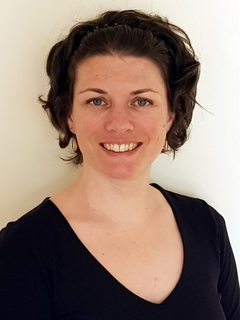
Experimenting on farm with farmers is gaining momentum as a choice instrument to contribute to addressing global challenges. This presentation will show how the complex histories of field experiments and participatory research are leading toward OFE solutions that are both evidence-based and farmer-centric. Varied communities thread these collaborative innovation pathways, among which those of Precision Agriculture occupy a key position for their ability to leverage scientific rigor, agronomy and digital technologies. Challenges and opportunities will be discussed against leading thoughts on the nature of innovation, arguing that the future of OFE lies in complex system thinking if it is to successfully contribute to key human and environmental agendas, in food systems worldwide and in the multi-facetted African context.
Dr. Brenda Ortiz is a Professor in the Crop, Soil, and Environmental Sciences Department at Auburn University. She has a Ph.D. in Biological and Agricultural Engineering from The University of Georgia (USA) with an emphasis on Precision Agriculture and Crop Growth Simulation Modeling. Over the last 14 years, Dr. Ortiz has led several extension and research projects focused on precision agriculture with emphasis on plant pathology as well as irrigation and nutrient management, and identification and co-development of climate-smart strategies for coping with climate variability and climate change. In 2015, she was the leader of the Precision Agriculture Systems Community of the American Society of Agronomy. In 2019, Dr. Ortiz was a visiting scientist at the Food and Agricultural Organization (FAO) in Rome where she worked on methodologies to strengthen the design, implementation, and evaluation of extension programs. Currently she advises several international research institutes on the design and implementation of extension programs. In 2022, she coordinated the design and implementation of a regional conference in the USA focused on Artificial Intelligence Applications in Agriculture. Besides her university faculty appointment, she serves now as the secretary of the International Society of Precision Agriculture.
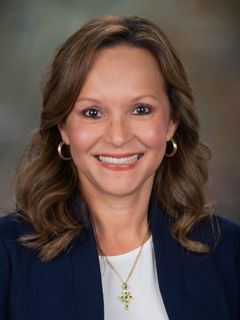
Crop management is strongly influenced by changes in weather and climate, therefore strengthening resilience and environmental sustainability will require robust advisory services that can support farmers’ decisions. Crop production adaptations to weather, climate variability, and change will need combined efforts from farmers, academia, industry, and government to co-develop solutions, train future workforce not only to advise the farming community but also develop solutions and also enable the proper infrastructure to support climate smart-agriculture. This presentation will provide examples from around the world of smart-advisory services developed with the farming community to support climate-resilient agriculture and discuss challenges and opportunities for the future.
Femi Adekoya, is a plant health scientist by training, an AgricTech professional, and an experienced practitioner in the agricultural & horticultural industry with over a decade year experience. He has a strong interest in and experience with agricultural innovations and technologies. He holds B.Agric (FUNAAB) and MSc. Integrated Pest Management (Harper Adams University) through the prestigious Commonwealth Scholarship by the UK Government. Currently, Femi leads as the Precision Agriculture Specialist at Integrated Aerial Precision (IA Precision); an enterprise where he uses UAVs and geospatial data analytics to help smallholders & commercial farmers, and relevant agricultural stakeholders adopt and practice precision agriculture. Furthermore, to address the lack of awareness and dedicated education for capacity building towards precision agriculture; he founded Precision Field Academy serving as the Head of Training, bridging the knowledge and skill gaps in precision agriculture and technologies.

Precision Agriculture holds enormous potential for Africa’s food security and socio-economic development. With the evolvement of the global agricultural systems and the growing emergence of the Fourth Agricultural Revolution (Agric 4.0), Africa is presented with a huge opportunity to leverage precision agriculture to meet its growing population demands in a sustainable environment. Of course, the growth of precision agriculture practices and tools is not without its challenges. However, to achieve rapid adoption of precision agriculture concepts, it is necessary to invest in building local capacity. With Africa being the world’s youngest continent, Africa can take advantage of the enthusiasm and the power of her young talents by nurturing this young demographic through quality education and building local capacities in precision agriculture techniques and technologies. As a young agricultural professional leading with digital technologies and engaging with youths across the continent in various capacity-building initiatives, I will address the potential strategies to promote the rapid adoption of precision agriculture in Africa.
2nd AfCPA Lead Plenary Speakers
Robert Blair is a fourth generation Kendrick, Idaho farmer, entrepreneur, AIGEN Solutions director, an agriculture technology company, and Idaho State Senator. The farm is situated on the edge of the rolling hills of the Palouse and not far from his Alma Mater the University of Idaho where he received his B.S. in Agriculture Business. His journey with precision agriculture started in 2003 using a PDA for simple mapping. That evolved into all different types of equipment, including Unmanned Air Systems (UAS) in 2006. Robert is the first U.S. farmer to own and use a UAS. His vision and advocacy of these technologies helped him become the first Precision Ag Institute International Farmer of the Year in 2009. Robert has been on the leading edge of the precision agriculture utilization and is recognized as a domestic and global leader. Robert received an Eisenhower Fellowship in 2011, taking him to South America for six weeks focusing on drones and precision agriculture. During the fall of 2012 he spent three weeks in Germany on a McCloy Fellowship for agriculture. In Idaho he was recognized as one of the most influential U of I College of Agriculture and Life Science (CALS) alumni, received the 2013 Governor’s Award for Agriculture Technology and Innovation and was honored as a 2015 U of I CALS Distinguished Alumni. Robert’s vision and leadership ability has been recognized by the positions he has held including president of the Idaho Grain Producers Association, chairman of the National Association of Wheat Growers (NAWG) Research & Tech Committee, chairman of the U.S. Wheat/NAWG Joint Biotech Committee, Idaho Farm Bureau Federation county president, an initial member of Idaho’s UAS steering committee, an initial advisory board member of the Drone World Expo, and a member of the AGree Conservation and Crop Insurance Task Force. In 2020, Robert was named to the Federal Communications Commission’s Precision Agriculture Task Force Working Group “Encouraging Adoption of Precision Agriculture and Availability of High-Quality Jobs on Connected Farms.” In 2022 Robert served as an Idaho State Senator for the 2022 Legislative Session representing Idaho Legislative District Six (6).
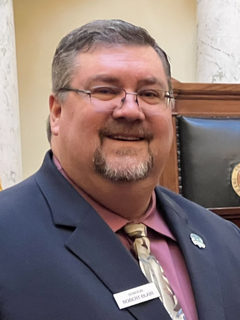
Most people think only larger farms can benefit from incorporating precision agriculture technologies, when the bigger impact happens with smaller farms. A ten percent increase in crop yield is much more impactful for small land holders for various reasons based upon 20 years’ experience, research, and personal utilization. Incorporating remote sensing, drones, small autonomous robots, and other technologies and practices can help small holders increase yield, crop quality, and free up labor resources to pursue other income opportunities. Success depends upon cooperative use of technologies, leveraging resources to lower equipment costs, easy field operability, and timely local data delivery. There are precision agriculture opportunities for annual crops on level land to perennial crops in more challenging terrain and everything in between. Africa was able to skip ahead with telephone technology for communication and can achieve similar success incorporating precision agriculture.
College of Agriculture and Life Sciences, School of Integrative Plant Science, Soil & Crop Sciences Section
Ithaca, NY, USA
Louis Longchamps earned his Ph.D. at Laval University working on site-specific weed management exploring the spatial distribution of weeds at the field scale. He followed with postdoctoral studies at Colorado State University working on precision nutrients, seeds, and water management. As a research scientist at Agriculture and Agri-Food Canada, Dr. Longchamps continued his work on precision agriculture and conducted workshops on observational research. In his position as an Assistant Professor of Digital Agronomy at Cornell University, he explores the potential of observational research and on-farm experimentation enhanced by digital technologies to accelerate scientific development in agriculture, maintaining productivity while reducing the negative impacts of agriculture on the environment. Dr. Longchamps is the current chair of the On-Farm Experimentation Community of the International Society of Precision Agriculture.
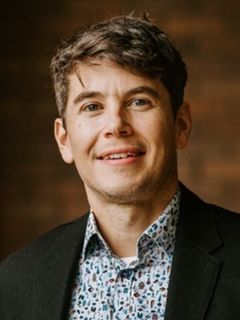
The large majority of farmers experiment on their farms to invent and/or adopt new crop production techniques and technologies. This endogenous experimentation process is slow because it often resembles trial and error and relies on minimal data (e.g., comparing total yield between two fields) to draw conclusions. Digital agronomy can help enhance the scientific value of these experiments and thus enable systematic progress toward working solutions. This presentation will discuss the use of the digital agronomy toolbox to enhance farmer-led on-farm experimentation.
International Maize and Wheat Improvement Center (CIMMYT)
Texcoco, México
Tek Sapkota Leads Climate Change Science group in CIMMYT and is a member of the Climate Investment Committee in OneCGIAR. His research interest includes analysis of cropping systems from food security climate change nexus. He is involved in studying management consequences on nutrient dynamics in agro-ecosystem and their effect on food security, climate change adaptation, and mitigation. Tek has worked in IPCC as Lead author as well as Review editor involved mainly in transforming food systems, particularly based on smallholder production systems, under the climate crisis.
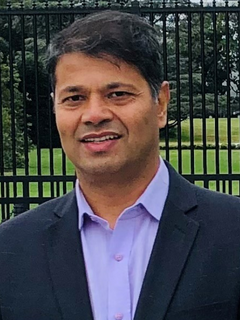
Food insecurity is a major challenge in Africa which is likely to worsen in the future unless food production in the region is substantially increased to keep up with the food demand of the increasing population. A sufficient amount of nitrogen (N) fertilizer is required for increasing crop yield as N helps convert solar radiation into carbohydrates that drive plant growth. However, smallholder producers in Africa use a small quantity of fertilizer N not sufficient for plant needs resulting in stunted plant growth, limited biomass production, carbon sequestration, and poor soil health. Some farmers in a few regions use organic fertilizers such as manure or plant residues including intercropping with legumes although such integrated fertilizer management practices are scanty and scattered. Such low N input leading to soil mining as the main reason for soil fertility losses and low crop yields, much lower than yield potential. However, there exists a wide variation in such N status quo throughout the continent even within the country boundaries. In order to determine location-specific N status-quo, we need a data-based approach to identify areas of fertilizer surplus/deficit, areas with large harvest gaps, and areas needing NUE improvement. Using various sources of data on N input and N output, we classified rice, wheat, and maize areas based on NUE, N surplus/deficit, and N harvest gap showing the priority areas of work for sustainable N management. With the exception of some areas in Morocco, Zimbabwe, Mozambique, South Africa and the Nile delta in Egypt, the majority of rice, wheat & maize areas in Africa have severe N deficits, soil mining, and a high N harvest gap demonstrating a huge scope of N management through technological, market and policy instruments. Using this database approach, we suggest spatially targeted N management strategies in maize, rice, and wheat fields across Africa. Such targeted N management approaches are needed to address food security, fertilizer crisis, and climate challenges faced by the region.
2nd AfCPA Plenary Speakers
Dr. Kwame Agyei Frimpong is an Associate Professor and Researcher in Soil Fertility, and Head of the Department of Soil Science at the University of Cape Coast in Ghana. Kwame is the current president of the African Association for Precision Agriculture. Dr. Frimpong holds a PhD in Plant and Soil Science obtained from the University of Aberdeen (2011); an MSc in Physical Land Resources from Ghent University, Belgium (2001); an MSc in Precision Agriculture from the University of Mohamed IV Polytechnic, Morocco (2022) and a BSc (Honours) in Agriculture from the University of Science and Technology, Kumasi, Ghana (1992). Dr. Frimpong has previously worked with Prof. Warren Dick, Ohio State University as Norman Borlaug Fellow, Prof. Bernd Marschner, Ruhr University of Bochum, Germany as a TWAS-DFG Fellow, and Dr. Martin Blackwell as a RIFS fellow at Rothamsted Research, UK. Kwame had also undertaken a comprehensive leadership training in Malawi through the AWARD fellowship. Kwame is leading an effort to integrate Precision Agriculture knowledge and technology into existing curriculum in sub-Saharan agricultural training institutions, and establish international PA-related research collaborations and long-lasting partnerships. Kwame loves music, reading and soccer.
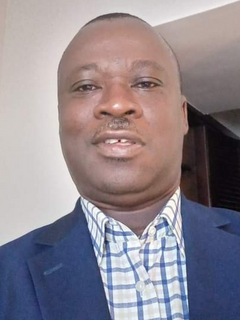
Improved agricultural productivity and access to safe and nutritious food is critical to meeting south Saharan Africa (SSA)’s growing food demand and for improving incomes for smallholders in the region. This has to be done in ways that do not compromise natural capital but secure ecosystem functions and services. With almost 60 percent of the region’s population under the age of 25, Precision Agriculture (PA) education for SSA youth is crucial. PA offers the potential to transform SSA agrifood systems for shared prosperity and enhanced livelihoods. The paper highlights the perceptions, enablers and barriers to strengthening PA education in Ghana. The study involved review of available literature to determine the PA landscapes and levels of digitalization in four selected sub-Saharan African countries. Furthermore, two focus group discussions, key informant interviews and a survey using a semi-structured questionnaire were done to elicit responses from faculty and students from two Ghanaian universities: the University of Cape Coast and the Technical University of Cape Coast, respectively. The study revealed that Precision agriculture education is yet to be widely adopted in widely adopted in SSA agricultural institutions. Most of the students and faculty interviewed (> 60%) affirmed that if PA education is strategically implemented, it can grow very rapidly, increase enrolment and speed up the development of skills essential to increase youth involvement in agriculture. Over 70% of the respondents agreed that PA education can create many direct and indirect jobs in SSA resulting in increased incomes. However, the study revealed that adoption and growth of PA in SSA universities depends on conscious efforts to spread new ideas and opportunities associated with PA. The dominant barriers identified include lack of PA - skilled faculty, tools and infrastructure as well as limited financial commitments and targeted policies towards integrating existing agricultural programmes with PA technology. The study also showed that limited IT and geospatial knowledge and skills, and the lack of infrastructure and logistics to promote PA services limits their effectiveness of extension services to promote PA awareness and adoption. The study found a weak cooperation between academic, industry and the media. The most important enablers for PA education in SSA include curricula revision to include ICT, geospatial and PA related knowledge such as remote sensing and geographical information system, Internet of things, satellite science, artificial intelligence, data science and machine learning. Besides, the adoption and expansion of PA education and outreach requires private and public sector investments into agriculture education and production systems. We conclude that integrating current agricultural education systems with Precision Agriculture tools, technologies and strategies has enormous potential for accelerated agricultural productivity and socio-economic growth in sub–Saharan Africa, but the barriers identified need to be tackled. We recommend a paradigm shift toward innovation and digital transformation to harness soil and water resources in a more efficient and economic manner to increase crop yields in an environmentally friendly approach.
Ph.D., Crop Production Science from National Agronomic Institute of Tunisia (INAT) Master of Science in Mediterranean Organic Agriculture from the Mediterranean Agronomic Institute of Bari (IAMB). Engineer in the National Institute of Field Crops (INGC) in charge of soil fertility and plant nutrition program. Visitor Teacher for soil science and soil fertility at the Higher School of Agriculture of Kef (ESAK) and El Kef Higher Institute of Computer science (ISI). Supervisor of several masters and diploma students' projects at ESAK, ISI, INAT, and Higher Institute of Biotechnology of Beja (ISBB) mainly in soil fertility and plant nutrition. Coordinator and member of several international and national projects, mainly in soil fertility and plant nutrition.
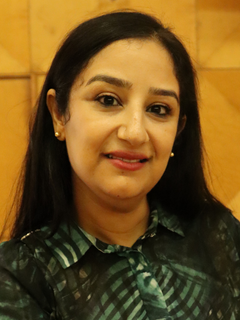
In this presentation, we will address a number of decision-making tools and assess their relevance and limitations for the Mediterranean and Tunisia's agricultural conditions. Decision-making tools can be classified, based on the scale, to different levels, ranging from national and regional scale to farm scale. On a large scale, an agricultural policy can be drawn based on the governmental agricultural plans, and soil maps can be adopted as a decision-making tool and thus guide support in the acquisition and subsidies of inputs from fertilizers and seeds to their beneficiaries. At the research level, it has been developed scientifically based standards for the crops’ requirement of the different types of nutrients and it has been developed mathematic models. In practice, agricultural extension institutions in Tunisia have developed several decision-making tools using a wide range of approaches ranging from classical techniques to modern technology. Classical techniques use, like soil analysis, are limited to 5% of the farmers in the rainy areas and 12.5% in the irrigated areas. Many young start-ups have also developed decision-making tools to manage plant nutrition and irrigation scheduling. Although there are many approaches and available decision-making tools for managing land fertilizing, the aim is still not achieved and the farmers still manage to fertilize their lands using their own traditional practices. Steps forward are needed in developing decision support tools to make the scientific outputs in land fertilizing available for the farmers in a comprehensible and easy way.
Jacopo Parigiani is a soil scientist by profession; a graduate from Wageningen University with a specialization in soil and water conservation. Jacopo has been with Cropnuts for the past 10 years managing Precision Farming accounts assessing remote sense data and generating variable rate programs for clients in Zambia, Tanzania and Kenya reducing the use of chemical fertilizer while maximizing yields. Jacopo has been surveying and mapping soils on commercial farms across east Africa, running soil suitability surveys to drive investments in.
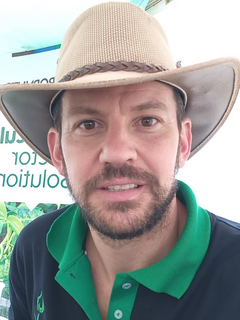
Soil types and how these change across a field/farm are the main drivers of yield. Through the surveying of the fields and their subsequent subdivision (virtual) into homogenous zones, Cropnuts has been able to carry out yearly soil sampling within each zone and generate soil correction plans to target the needs of each individual zone rather than applying blanket recommendations. This has led to improved fertilizer efficiency and has had a massive impact on yields of our clients.
Nawfel ROUDIES has been managing, for nearly 23 years, agriculture related topics and initiatives, food security, environment and rural development. His leadership went beyond Morocco to cover international level particularly in sub-Saharan Africa and Asia. Nawfel holds an agriculture engineer degree with a major in Animal Production, from the Hassan II Agronomic and Veterinary Institute in Rabat; in addition to a management certificate from ISCAE in Rabat. Mr. Nawfel ROUDIES joined the OCP Foundation in 2012 as Head of International Portfolio before taking over the position of Head Of Al Moutmir Business Unit at Mohammed VI Polytechnic University.
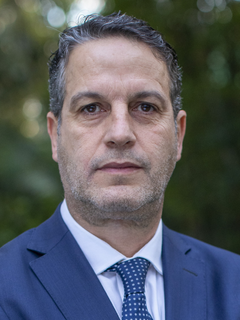
Completely aligned with the mission of Africa Ag conference to “connect the science and practice needed to put precision agriculture in action for Africa”, UM6P, through its farming development initiative Al Moutmir in Morocco, works hand in hand with all the Ag players to scale innovative solutions to unlock Africa value through responsible technologies. We believe African agriculture is at a transformational moment in its history and a time of incredible possibility and promise for farmers and industry alike. Can Africa become a world leader in sustainable farming, using local resources to realize the continent’s vast agricultural potential and help feed its growing population? At OCP and UM6P we believe the answer is “yes.” We are committed to working hand-in-hand with the people who will make this a reality . Precision agriculture is a key ingredient to ensure sustainable food supply to a growing population why preserving the natural resources and helping farmers, especially small holders, to improve resource use efficiency, productivity, quality, profitability and the sustainability of agricultural production. In this presentation, we will be sharing some insights on how Al Moutmir team is contributing to leverage digital technology for the benefit of all. We will be presenting some Digital farming solutions that aim at realizing change in food production systems. These precision AG solutions are brought throughout the faming value chain and applied within a toolbox of agronomic and management services to facilitate their adoption by smallholders: soil testing, smart input, production and farmer practices and market connection. At UM6P, we have a vision for the future of farming in Africa and wants to be a part of making this a reality. Let’s meet on Thursday 8th December to learn more.
Dr. Leonardus Vergütz is a professor and soil scientist currently developing the Chair of Soil Science at Mohammed VI Polytechnic University – UM6P. He is an agronomist with MSc and DSc in Soil Science and Plant Nutrition and has great experience with the highly weathered and acidic soils commonly found in the tropics. Before arriving in Morocco, he was a professor in Brazil and has been studying the mechanisms controlling the fate and behavior of elements in the soil-plant continuum aiming to build more sustainable and productive agricultural systems. Recently he was part of the advisory group commissioned by the European Commission that wrote the policy paper that should guide the R&I cooperation between Africa and Europe for the Green Transition in Africa. This paper was released early 2022 during the AU-EU Summit and brings soil security to the core of the Green Transition in Africa.
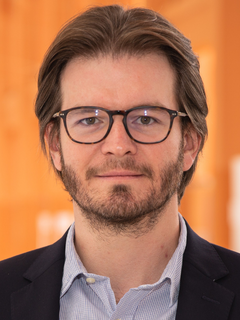
In the presentation I will discuss about the dichotomy regarding P between the northern (temperate conditions) and southern (tropical conditions) realities. I will bring the case of Brazil and how the correct management of P was important for the development of its agriculture. At the end, I will close talking about how we need to shift our focus towards improving P use efficiency to solve our issues (both where it is lacking and where it is in excess) and the way to achieve it.
2nd AfCPA Panelist Speakers
Dr. Lilian Wanjiru Mbuthia-Matoke is a young and passionate soil scientist whose special interest is in Agricultural Management Practices that enhance Soil Fertility, Sustainable Crop Production and Environmental Quality. She is currently the senior agronomist for Israel Chemical Limited (ICL) in East Africa based in Nairobi providing technical support for specialty fertilizers as well as training of farmers and extension service providers on soil and crop nutrition management. She also acts as the International Potash Institute (IPI) coordinator for IPI activities in Eastern Africa responsible for promoting potash market development in Eastern Africa. After many years abroad for her studies, including an MSc in plant pathology and entomology from Hanover University (Germany) and a Ph.D. in Environmental Soil Science from the University of Tennessee (USA), Dr. Mbuthia returned to Kenya in 2015 with a vision of transforming the agricultural landscape of her country. Her MSc focused on the combination of biocontrol organisms in the control of soil-borne pathogens, specifically the combination of mycorrhiza and Trichoderma harzianum in the control of Fusarium wilt (Fusarium oxysporum f.sp. lycopersici) in tomatoes. Dr. Mbuthia’s Ph.D. focused on the dynamics of microbial community and nutrient cycling under different conservation agriculture practices (no-till, cover crops, and fertilization regimes) using both biochemical and molecular techniques.
